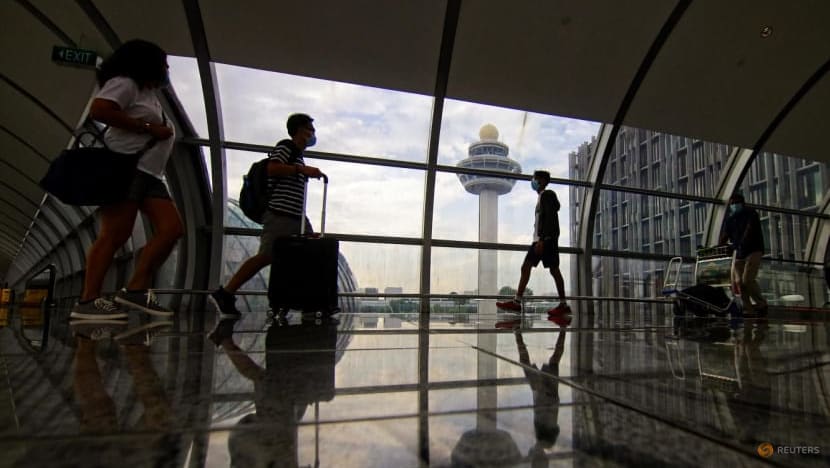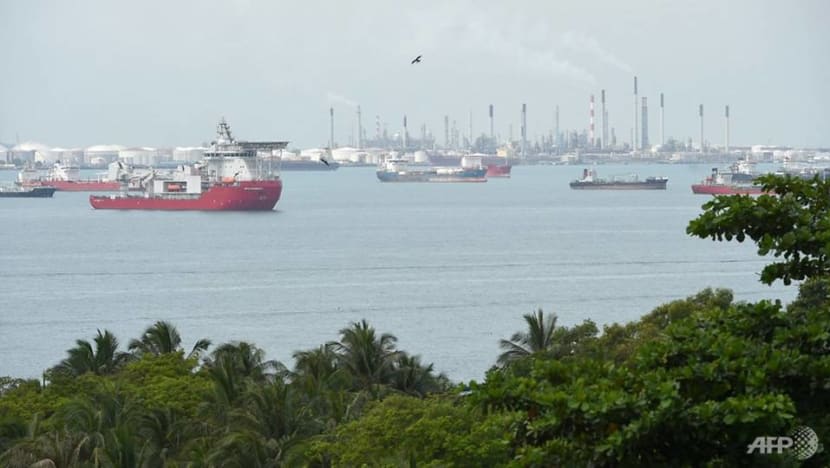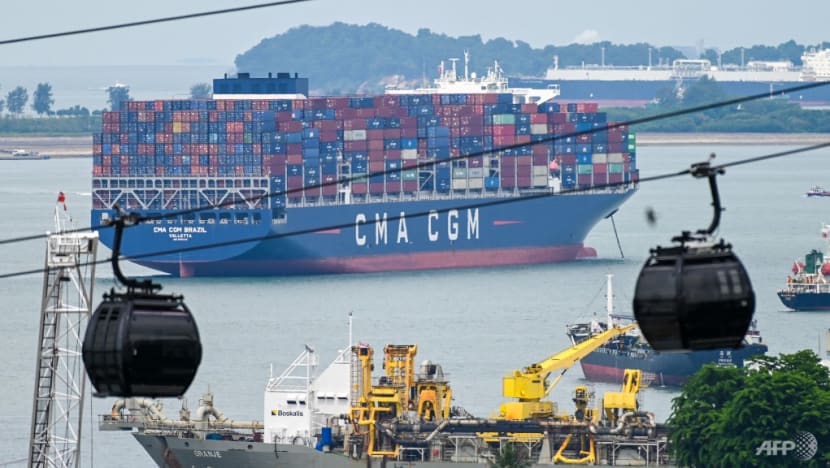
SINGAPORE: Singapore will focus on stockpiling medical supplies and other essential healthcare items moving forward, beyond its current efforts with food, said a senior government official on Monday (Mar 13).
Speaking to CNA’s Singapore Tonight, Permanent Secretary of the Ministry of Trade and Industry Gabriel Lim said the country currently already has a reserve of food such as rice, and would have to “take a careful look as to what other items we need to stockpile for”.
“I think we should have to do more for essential medical supplies like masks, for example, and maybe other goods or other items that are needed in the healthcare institutions,” he said.
He emphasised that stockpiling is one part of Singapore’s three-pronged approach to ensure key supplies. The other two prongs are diversifying its import and export markets and ramping up local production.
The resilience of Singapore’s supply chains during the pandemic was listed as one of the “wins” of Singapore’s COVID-19 response strategy in a White Paper released last week.
Singapore also benefited from its “tremendous connectivity to the rest of the world”, due to its infrastructure such as a world-class maritime port and airport, noted Mr Lim.
TREMENDOUS GLOBAL CONNECTIVITY
Credit for the excellent connectivity “very much goes to our predecessors”, said Mr Lim, adding that being connected has helped Singapore “weather some of the localised supply chain disruptions that were taking place in other countries”.
Singapore also took the element of trust very seriously in fulfilling its responsibility as a global hub during the pandemic, said Mr Lim.

“At no point in time did we ever impose any sort of export restriction on any sort of essential goods. I think we were one of the very few countries in the world that did that,” he said. “We honoured our commitments to our investors, as well as to our international customers.”
That meant Singapore was able to plug a hole when supply chains were being disrupted globally.
He cited port operator PSA’s success in positioning itself as a catch-up port, where ships from around the world were able to make up time for the delays faced in other ports, when passing through Singapore.
“For us to do better, I would say we should double down on these two elements. We should continue to stay connected, continue to reach out and build a much richer, denser web of interlocking trade roots and trade connections,” said Mr Lim.

“But at the same time also, always strengthen the trust we have with the business community, with our international partners, and of course with our friends all around the world.”
Mr Lim said it was such a high level of cooperation and cohesion that helped Singapore overcome the worst of the supply chain disruptions during the pandemic.
BEYOND STOCKPILES
Noting that Singapore has never seen stockpiling as the single answer to ensure access to essential supplies, Mr Lim said turning to the stockpiles remains “our measure of last resort”.
Mr Lim said it is helpful to have items physically in stock, as Singapore has done with rice.
However, he noted: “I think the first thing we have to recognise is that we can’t prepare a hundred per cent for every last eventuality. I think it’s not possible. It’s also too expensive and you can’t stockpile everything. You just don’t have enough space.”
It is important to prioritise the areas that require stockpiling, and to make sure the country has “enough as a baseline to get through that as a critical and essential service, come what may”.
Diversification of its import and export markets is still a key strategy Singapore is adopting.

“We want to buy, we want to trade, we want to work with a wide range of partners all around the world. That’s a huge reason why we are so active on the international trade circuit,” said Mr Lim, noting Singapore’s wide array of free trade agreements.
The pandemic also highlighted the importance of having local production capabilities, so that Singapore can produce its own goods and food.
While Singapore does not produce its own rice, local companies produced items such as noodles and bread, to cover for some of the gaps in supply chains that arose, said Mr Lim.
He said that such gaps will arise again in the future, and that diversification gives Singapore the agility and social resilience to tide over unexpected surprises until the market normalises and the goods are available again.

